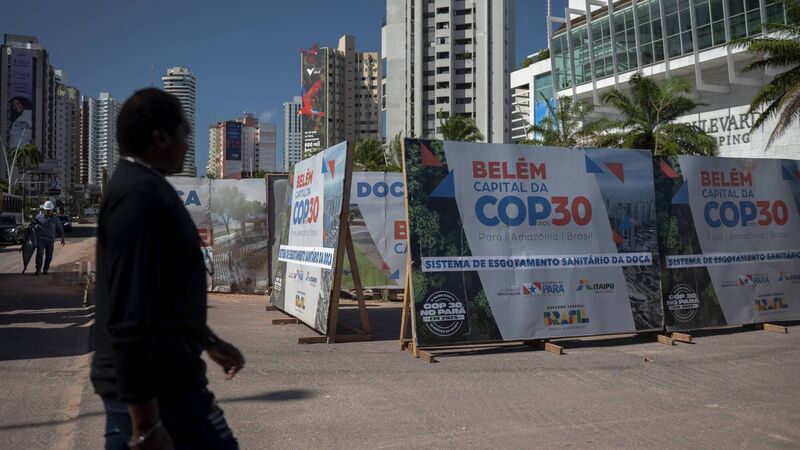Irish Examiner view: Inclination is flattening for Cop 30

An infrastructure project underway in the Amazonian city of Belem, Brazil, ahead of the UN Cop30 climate conference. Picture: Carlos Fabal/AFP/Getty
The annual climate conference — this year’s event, Cop 30 opens in 10 days — has more and more come to resemble one of those events inexorably governed by the law of diminishing returns.
Many countries will be sending their great and their good to the 18-day event — the pre-sessions begin on Monday before the plenary commences on November 10. Ireland has yet to announce its delegate list for the 9,000 air miles round trip to the Brazilian city of Belém, known as the “gateway to the Amazon”. Among the ambassadors, diplomatic staff, advisors, trade officials, and politicians we can reasonably expect our climate minister, Darragh O’Brien, to be there alongside the minister for foreign affairs and international development, Neale Richmond.
















